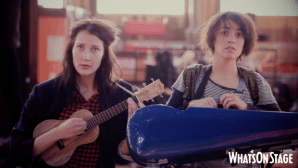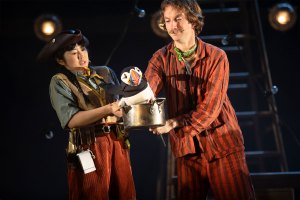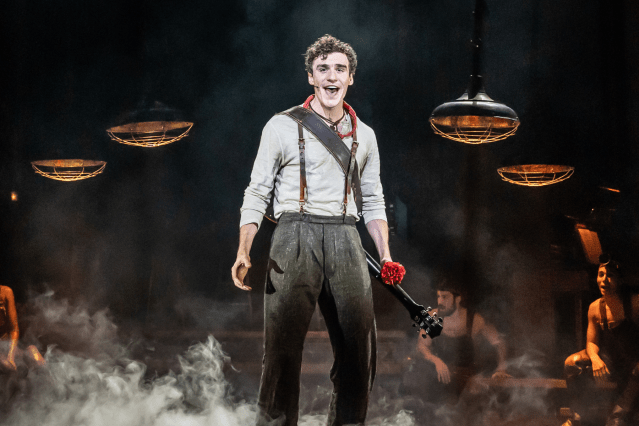Review: La Strada (The Other Palace)
Sally Cookson directs a new stage adaptation of Fellini’s film
It’s no coincidence that Italian neorealism has hit British stages of late. First came Ivo van Hove’s version of Visconti’s early effort, Obsession. Now Jane Eyre director Sally Cookson has devised a staging of La Strada, Federico Fellini’s last foray into the form.
Emerging in the wake of Mussolini’s fascist government and its glossy studio films, the movement sought to show the real Italy – run-down and desolate, wracked by poverty and war. Its directors turned their cameras on an age of austerity, and its sensibilities chime with our times. The eyes have it in Cookson’s version. With flour-white faces with red-raw rings, her actors look tired and teary – a chorus under the cosh.
La Strada is a story about breaking free, and the strongman Zampanò’s travelling circus act, snapping chains with his chest, stands as a metaphor for society’s shackles. The pressure’s so intense, or so he tells us, that a man can go blind in the process. Is that true – or is there some trick?
Fellini’s film follows Gelsomina (Audrey Brisson), a young country girl packed off by her mother to be Zampanò’s assistant. A brute and a bully, he boozes their earnings away and beats her into shape. Only when they join a circus collective, all earning and eating together, does Gelsomina see another possibility and, in its acrobat fool (Bart Soroczynski), who lives life lightly and riles Zampanò right up, she finds the inspiration to take flight.
What’s really interesting, though, is why she stays with the strongman so long. In significantly lowering Gelsomina’s IQ, Cookson flattens the story. Brisson’s Gelsomina, swamped in a male blazer, is a doltish bumpkin with Worzel Gummidge hair, not the bright-eyed minnie of Giulietta Masina’s original. She’s simply too slow to leave Stuart Goodwin’s gruff northern macho-man, and there’s nothing between them beyond oppressor and captive.
That reduces Fellini to a straightforward morality tale, with Soroczynski’s nimble clown its goodly angel. (He’s first seen on a high wire, in a suit with wings on.) The form doesn’t help, mind. Since you can’t show the real Italy onstage as in film, setting inevitably disappears – all those barren fields and dusty dirt tracks. Van Hove made a virtue of that in Obsession, abstracting the story into a classical tragedy. It’s far more fatal for Fellini. Essentially, La Strada is missing ‘la strada’ – the road – and without it, you lose the disconnect between reality and its dreamers, between the world and the unworldly. In that, La Strada levels out.
What Cookson does brilliantly – as ever – is stage story through the senses. Benji Bower’s music, played by a raggedy, rural house band on strings and squeezeboxes, brings bar rooms and big tops to life. Brisson sends lonely little la-la-las off into space, as birdsong echos and breath conjures the sea that reminds her of home. Cellos creak into the story’s queasier moments – its beatings, booze and abuse – and Aideen Malone’s lighting slides from bile green to bright red. Cameron Carver’s movement picks up feelings and amplifies them, be it the spinning bodies of a crowd or the twitchiness of Gelsomina’s anxiety.
It’s as if Cookson has coloured in Fellini’s black and white film, but in flushing it with feeling, she tips it too far towards fairytale.
La Strada runs at the Other Palace until 8 July.













